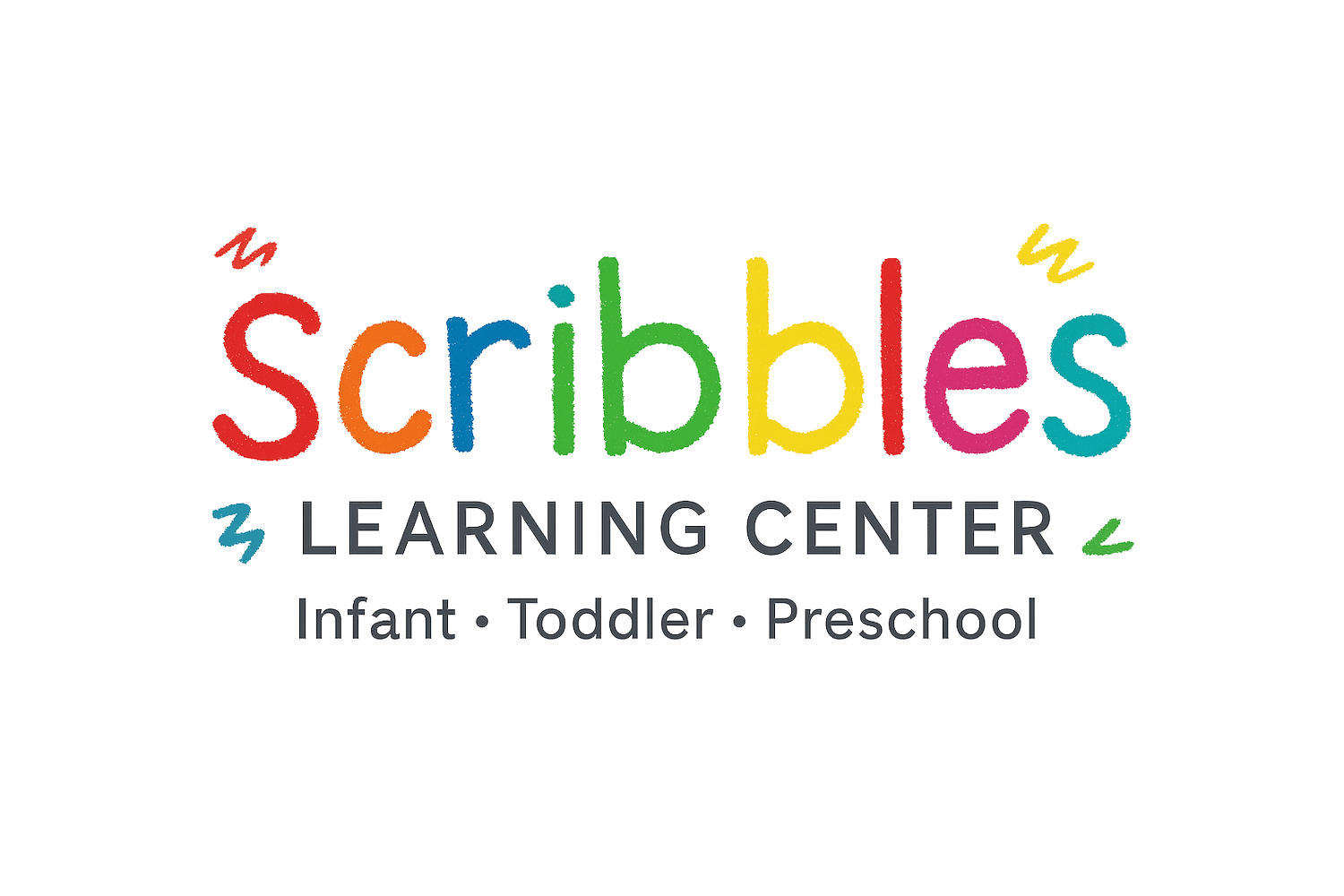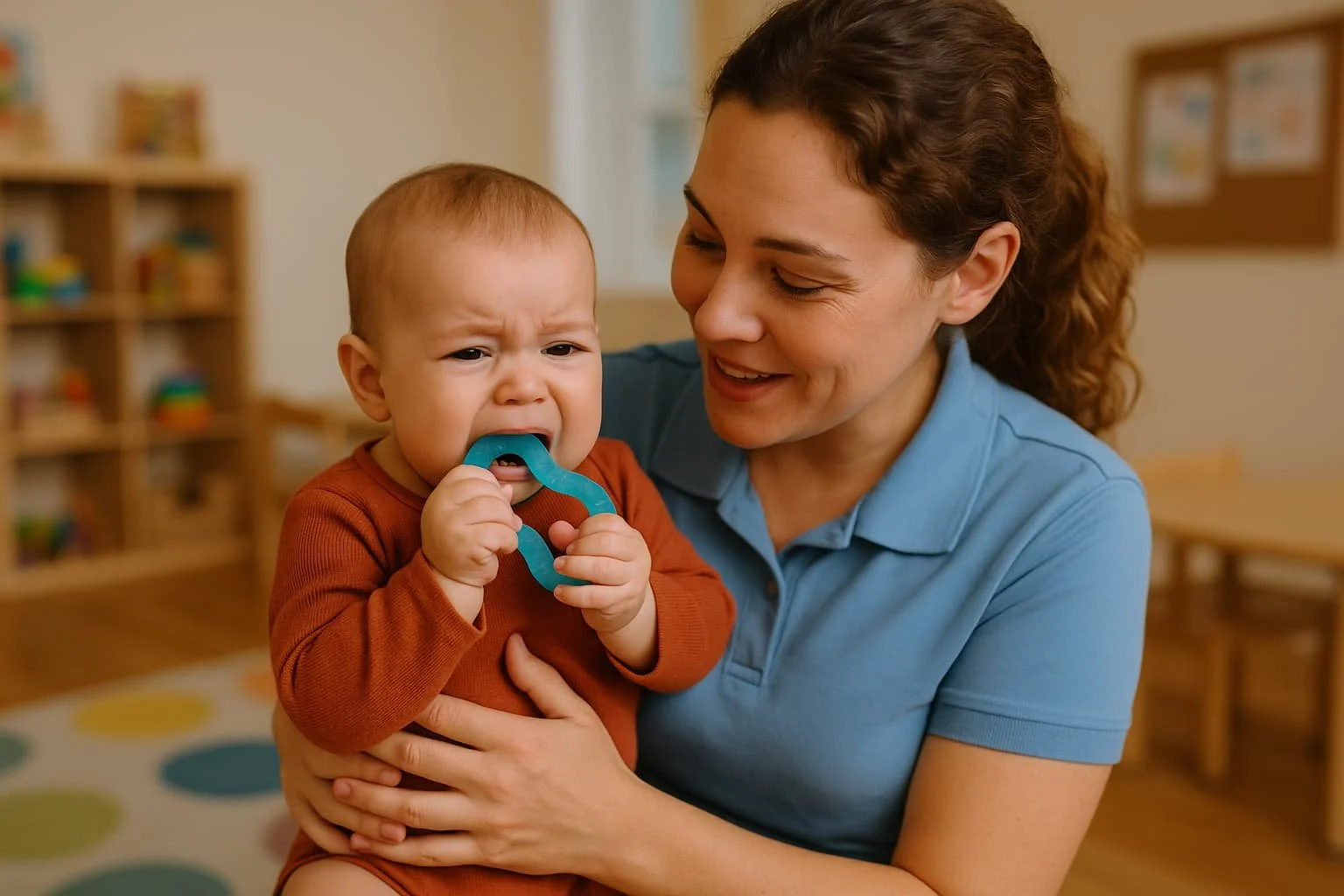Teething Troubles: What Infant Parents Need to Know
Watching your little one grow their very first teeth is an exciting milestone, but it can also bring some fussiness and discomfort. At Scribbles Learning Center, we know that teething can feel overwhelming for parents, especially when sleep schedules and routines are disrupted. Here's what you need to know to support your baby through this stage.
When Does Teething Start?
Most babies begin teething between 4-7 months, though it can vary.
The bottom front teeth (central incisors) are usually the first to appear.
By the time your child is 3 years old, they may have all 20 primary teeth.
Common Signs of Teething
Every child experiences teething differently, but you may notice:
Extra drooling
Gnawing or chewing on fingers, toys, or household items
Irritability or fussiness
Swollen or tender gums
Trouble sleeping
(Note: Teething does not usually cause high fevers, diarrhea, or severe illness. If your child shows these symptoms, consult your pediatrician.)
Comforting Your Baby
Here are some simple, safe ways to ease teething discomfort:
Teething toys: Clean, BPA-free teething rings or toys to chew on
Cold comfort: A chilled (not frozen) washcloth or teether to soothe sore gums
Gentle gum massage: Wash your hands and lightly rub your baby's gums with your finger
Extra snuggles: Sometimes, comfort from a caregiver is the best remedy
What to Avoid
Don't give your child frozen objects-they can damage delicate gums.
Avoid teething gels or tablets that aren't recommended by your pediatrician.
Skip necklaces or jewelry marketed for teething, as they can pose choking hazards.
When to Call the Doctor
Reach out to your child's healthcare provider if you notice:
A fever above 100.4°F
Rash, diarrhea, or vomiting
Signs of ear pain that may indicate an ear infection
Excessive fussiness that isn't soothed with comfort measures
Teething at Scribbles
At Scribbles Learning Center, we're here to help your child (and you!) through the teething stage:
Teachers provide safe teething toys and extra comfort throughout the day.
We communicate with parents about changes in behavior, appetite, or sleep.
We partner with you to make sure your baby feels cared for and supported during this milestone.

